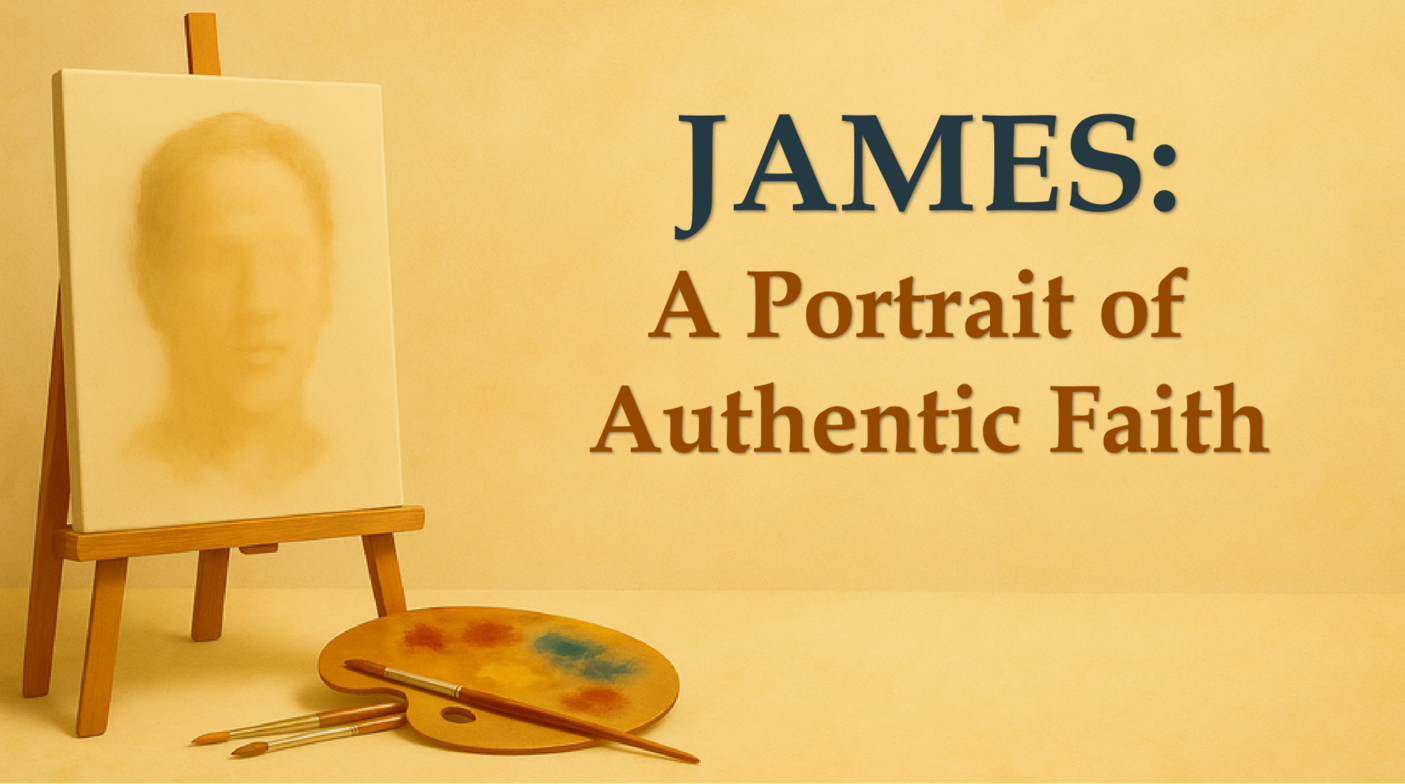Real Faith Moves from Hearing to Doing


We live in a world full of listeners.
We listen to podcasts, watch TikTok, highlight quotes, and share truth on social media. But how much of what we “amen” actually makes it into our daily lives?
That’s not just a modern problem. The early church wrestled with the same thing. James — church leader and half-brother of Jesus — saw people gathering to hear truth every week, only to walk away unchanged. So he wrote a simple but piercing challenge:
“Be doers of the Word, and not hearers only, deceiving yourselves.” — James 1:22
This verse exposes one of our greatest blind spots: we confuse exposure with obedience.
When Listening Becomes a Substitute for Living
We all have clever ways of talking ourselves into comfort.
We tell ourselves, “I’ve been thinking about making changes.”
Or, “At least I know what I should do — that’s a start.”
Or, “I’ll get to it when life slows down.”
That’s the kind of reasoning James calls “deceiving yourself.” The Greek word literally means “to reason beside the point.”
It’s like watching a fitness video while eating a donut — you feel good about your awareness, but nothing’s actually changing.
Spiritually, we do the same thing.
We listen to sermons.
We underline verses.
We feel conviction.
And then we move on.
Hearing the Word without acting on it is a kind of spiritual procrastination — convincing ourselves that knowing is the same as doing.
What the Mirror Reveals
James gives us a picture: a person looks in the mirror, sees what needs attention, then walks away and forgets.
The mirror doesn’t lie — it just reveals. But if you don’t respond, it’s useless.
We do this with God’s Word all the time. It shows us our impatience, our pride, our hidden resentment. We feel the nudge to change — to forgive, to serve, to trust — but then we walk away unchanged.
The mirror moment passes. The reflection fades.
Jesus described it, too, in the Parable of the Sower: some people hear God’s truth with excitement, but it never takes root. The sun of life’s distractions scorches what began in the soil of emotion.
The problem isn’t the seed — it’s the soil of our hearts.
Why Obedience Feels Like Freedom
When James talks about “the perfect law of liberty,” it almost sounds like a contradiction. Law and freedom? But they’re actually inseparable.
God’s Word isn’t a set of chains — it’s a playbook for how life works best.
Think of a basketball coach in the final seconds of a tied game. The coach draws up a play. The players nod, understanding every detail. But knowing the play doesn’t win the game — running it does.
When they trust the coach and move together, the play brings order, rhythm, and victory. The structure doesn’t restrict them; it releases them.
That’s what God’s Word does for us. It gives shape to our freedom. The same God who rescued Israel from slavery gave them His law — not to limit their joy, but to protect it.
And in Jesus, that same pattern continues: grace comes first, then guidance. We are redeemed first, then ruled by love.
Where Blessing Really Lives
James says, “The one who abides in the Word will be blessed in his doing.”
Blessing isn’t about comfort or success. It’s the deep peace of walking in step with God.
It’s not a paycheck for performance — it’s the presence of God that meets us in obedience.
Every “yes” to His Word becomes a meeting place with Him.
Every act of obedience deepens joy, confidence, and peace.
That’s what Jesus meant when He said, “If you know these things, blessed are you if you do them.” (John 13:17). The blessing isn’t found in the knowing, but in the doing.
Where to Begin
Start small.
Each time you open the Bible this week, ask one question:
“Lord, what are You showing me to do?”
Then write it down — and act on it within twenty-four hours.
Don’t wait for perfect motivation; act while conviction is fresh.
You don’t need more information. You need transformation — and transformation starts with one obedient step.
The Heart Behind It All
James introduces himself as “a servant of God and of the Lord Jesus Christ.” That’s where all real obedience begins — with remembering who we belong to.
Servants don’t just hear the master’s voice; they live by it.
And for those who belong to Jesus, obedience isn’t a burden — it’s the joyful response to love.
So maybe today your prayer isn’t, “Lord, help me know more,”
but, “Lord, help me live what I already know.”
Because faith that listens and never moves isn’t faith — it’s a theory.
But faith that acts — even imperfectly — is alive.
Reflection
-
What truth has God been showing you lately that you haven’t acted on?
-
Where do you sense Him calling you from comfort into obedience?
-
What would change in your life if you stopped admiring the Word and started living it?
May the Word of God not just inform your mind but transform your life — until what you see in the mirror is the reflection of Christ in you.
